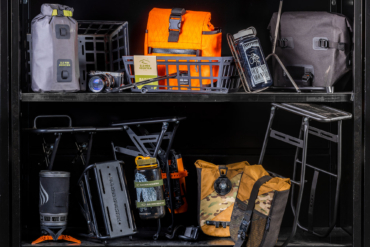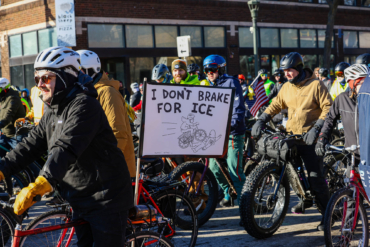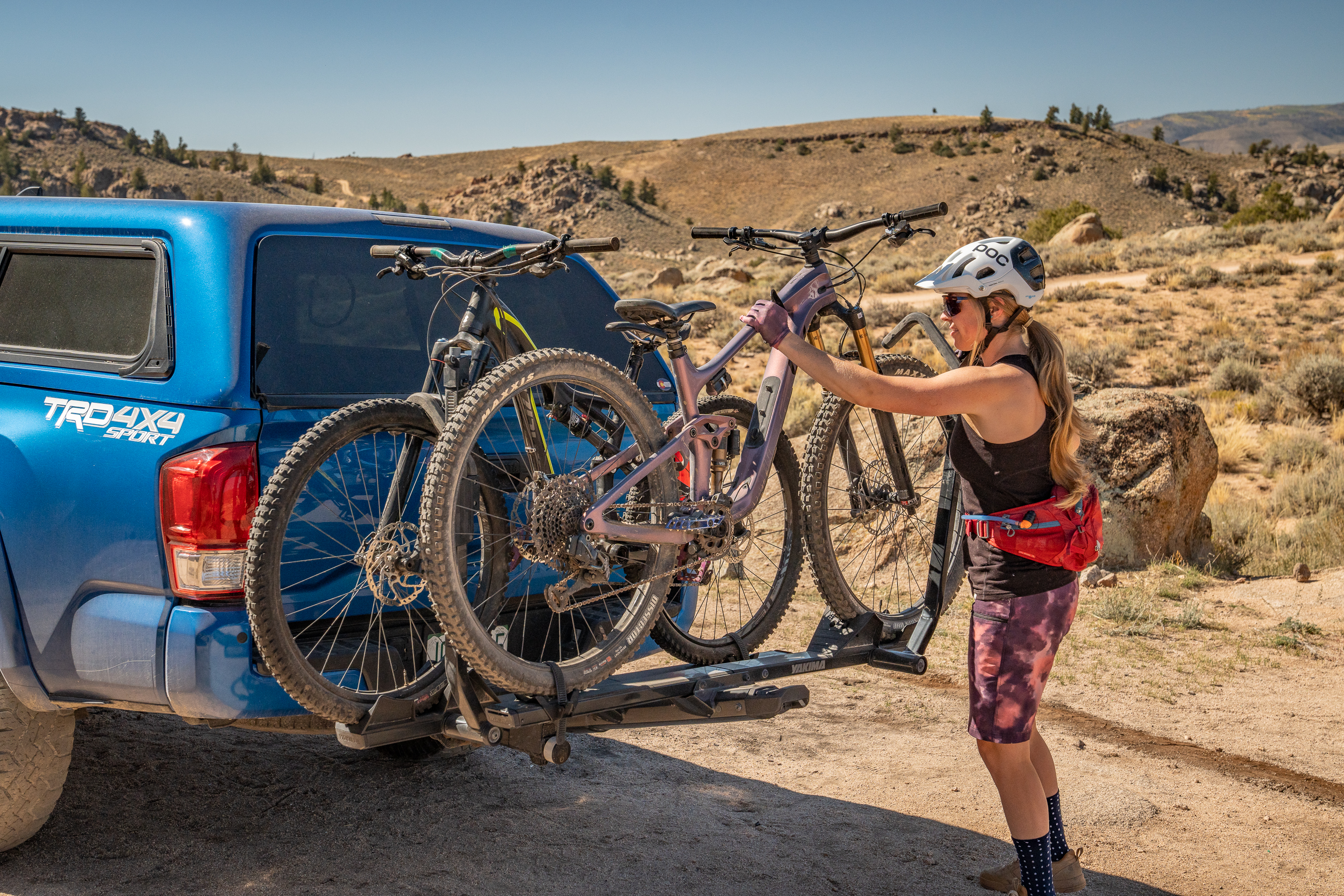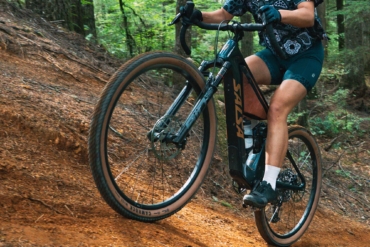Southern Utah attracts mountain bikers from around the world to test their mettle on ledge drops, ramps, and long downhill lines.
Pioneers tried to settle the area and mostly failed. Yet in mountain bike circles, the vast southern expanses of the Beehive State pioneered the extremes of freeriding.
Beyond more well-known areas like Virgin and Hurricane lies more uncharted territory open to adventurous mountain bike riders who want to get off the beaten path. Part of the fun is exploring deeper into the mountains and shifting from pavement to dirt toward points unknown.
We tagged along as three riders and their Chevy Silverado went off the map, off the trails, and found joy in choosing their own adventure.
Freeride Utah
You don’t come to southern Utah to ride a specific park or trail. You come for a plethora of options. The region draws mountain bikers from different backgrounds and styles of riding, all of whom can appreciate the expanse of the high desert.
For years, it has been a proving ground for freeriders who helped expand the limits of mountain biking. Perhaps most famous from afar is Virgin, which hosts the Red Bull Rampage every year.
This isn’t to say there aren’t existing lines and popular routes. However, there are no signs, so you’re out there on the open terrain where you can see other trails and riders — if there are any — and change your course on the fly. Along the way, you’ll soak up great views, too.

For visiting riders, the wide-open space and trails make the drive to this remote area worth the trip. The number of options makes it a dependable way to have fun exploring and then double back to hit lines and jumps just right. Not to mention, you can put your off-road driving skills to the test as you venture into rural Utah.
Nichole Baker, based in Durango, Colorado, is an XC rider with a whole other gig in pathology. Damon Iwanaga converted from motocross to freeride when he moved to Incline Village, Nevada, near Lake Tahoe. They both came to Utah to ride with freerider Reed Boggs who lives in nearby Hurricane, Utah.
The three of them took to nearby trails for big descents and technical lines. Going off the map let them take their time exploring and get the most from what the mountain landscape had to offer. And after a day full of runs, it was time to do some flips over the Chevrolet Silverado truck that brought them out there.

Or Stick to the Trails
Hucking yourself off a ledge that few have hucked before may not be your thing. You’re not alone.
Luckily, there are plenty of established trails and routes for mountain bikers that don’t mind pedaling up a few climbs. And the trails offer enough variety for beginners and advanced riders to enjoy.
XC riders can delight in the 11-mile singletrack of Bearclaw Poppy and Snake Pit Loop or the flowy intermediate stretch called Prospector.
Chances are you’ll come across sections or adjacent trails that will test your comfort and expand your skills if the mood strikes. Don’t forget to respect the environment around you. Whatever you take to the trails, make sure you pack it out.

What to Expect
You don’t have to drop a pin and navigate straight to that spot you saw in the latest bike video. The region is filled with riding trails that you want to explore via Google satellite before heading out.
Then check to make sure it’s public land or whether you need a permit. It could be you need a permit to drive in certain areas, though the biking is mostly wide open.
Knowing the terrain can get rough, make sure you have a vehicle that is off-road capable and has high ground clearance. A dependable vehicle offers peace of mind when exploring areas where both people and cell service are hard to come by.
Many popular trails are on BLM lands that allow free dispersed camping. Make sure you set up camp on high ground, away from washes or runoffs. You can also drive into nearby Zion National Park for more established camping sites and amenities.
For the most part, the clusters of trails are close to small towns that have come and gone or just hung on. St. George is perhaps the largest town in the region. There are lodging options in each.
Aside from summer, riding can be relatively comfortable in the high terrain. Obviously, even the high desert gets hot in the summer, especially when wearing pads and a full helmet, so be ready for that.
Spring and fall are the most popular times to ride in the area, but you have to be aware that it is also the rainy season. If heavy rains come, flash floods are common, and the dirt can become muddy enough that not only are rides off the table but driving to the areas is also ill-advised.

What to Pack
Remember, this is a dry desert and you’ll burn plenty of calories riding. Pack plenty of snacks and water — more than you think you’ll need.
Obviously, you need to have a first-aid kit, but you always keep one in your truck, right?
On any adventures in remote areas, it’s worth having a safety plan in place for your group. Satellite phones or other off-grid communications devices will let you stay in touch with your group and call for help in an emergency. If someone gets injured, you should already know the location of the nearest gas station (or cell service spot) as well as directions to the person in need of help.
These trails can be hard on your bike. So, getting your bike tuned and ready is a good idea before making a long trip and losing time on repairs. That said, you should bring some basic bike tools as well so you’re ready for any small mishaps while you’re out there.

Point and Pedal
Venturing beyond the beaten path and into the unknown is an exciting and fulfilling adventure. Take the time to research your area and prepare for the unexpected, and you’re sure to make memories of a lifetime.
This post is sponsored by the 2021 Chevy Silverado — Find New Roads. Learn more about the 2021 Chevy Silverado and more truck models online.







